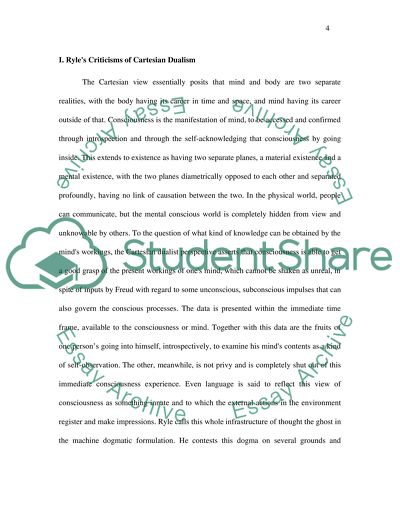Cite this document
(“Ryle's criticisms of Cartesian Dualism Essay Example | Topics and Well Written Essays - 1500 words - 1”, n.d.)
Retrieved from https://studentshare.org/philosophy/1604144-ryles-criticisms-of-cartesian-dualism
Retrieved from https://studentshare.org/philosophy/1604144-ryles-criticisms-of-cartesian-dualism
(Ryle'S Criticisms of Cartesian Dualism Essay Example | Topics and Well Written Essays - 1500 Words - 1)
https://studentshare.org/philosophy/1604144-ryles-criticisms-of-cartesian-dualism.
https://studentshare.org/philosophy/1604144-ryles-criticisms-of-cartesian-dualism.
“Ryle'S Criticisms of Cartesian Dualism Essay Example | Topics and Well Written Essays - 1500 Words - 1”, n.d. https://studentshare.org/philosophy/1604144-ryles-criticisms-of-cartesian-dualism.


